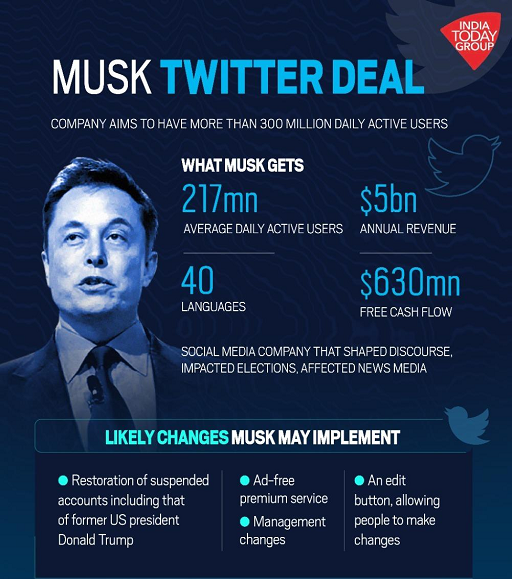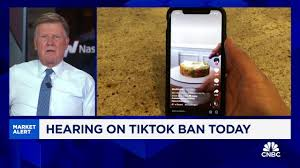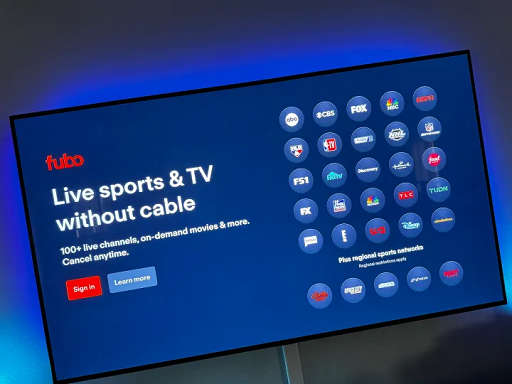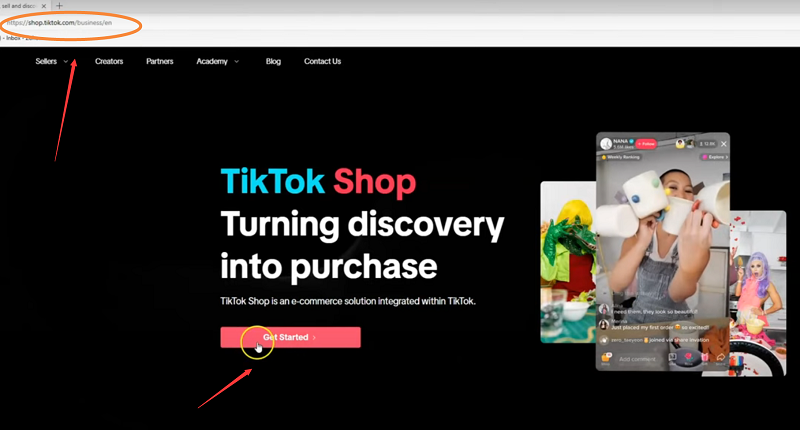Elon Musk's acquisition of Twitter in October 2022 was one of the most talked-about business moves. The deal, worth approximately $44 billion, raised many questions and speculations about his intentions. Here's a detailed look at the reasons behind Musk's decision to buy Twitter.

1. Promoting Free Speech
Elon Musk has always been a vocal advocate for free speech. In his eyes, Twitter serves as a modern-day town square, where people from all walks of life can discuss ideas and engage in healthy debates. Musk believes that free speech is crucial for democracy and wants to ensure that Twitter remains a platform where diverse opinions can be expressed without fear of censorship.
2. Reducing Polarization
Elon Musk's acquisition of Twitter in October 2022 was one of the most talked-about business moves. The deal, worth approximately $44 billion, raised many questions and speculations about his intentions. Here's a detailed look at the reasons behind Musk's decision to buy Twitter.

1. Promoting Free Speech
Elon Musk has always been a vocal advocate for free speech. In his eyes, Twitter serves as a modern-day town square, where people from all walks of life can discuss ideas and engage in healthy debates. Musk believes that free speech is crucial for democracy and wants to ensure that Twitter remains a platform where diverse opinions can be expressed without fear of censorship.
2. Reducing Polarization
Musk has expressed concerns about the increasing polarization in society, exacerbated by social media platforms. He aims to bridge the gap between different viewpoints by promoting a more balanced and inclusive environment on Twitter. By addressing issues related to echo chambers and algorithmic biases, Musk hopes to foster a space for constructive dialogue and reduce societal divides.
3. Tackling Spam and Bots
One of the significant challenges on Twitter is the prevalence of spam and bot accounts. Musk has been vocal about his intention to combat these issues and improve the platform's overall user experience1. By reducing spam and bot activity, he aims to create a more authentic and genuine space for users to interact.
4. Enhancing Transparency and Trust
Musk plans to make Twitter's algorithms open-source, allowing users to understand how content is curated and recommended. This move aims to increase transparency and build trust among users. By providing insights into the platform's workings, Musk hopes to address concerns about algorithmic biases and manipulation.
5. Expanding Twitter's Capabilities
Elon Musk has a vision of transforming Twitter into more than just a social media platform. He envisions an "everything app," tentatively named X, where users can access a wide range of services and features, from social networking to financial transactions. This ambitious plan aligns with Musk's broader goal of creating integrated platforms that offer diverse functionalities.
6. Personal and Business Synergies
Musk's acquisition of Twitter is also driven by potential synergies with his other ventures, including Tesla, SpaceX, and Neuralink. By owning Twitter, he can leverage the platform's capabilities to support his business interests and promote innovation across his companies. Additionally, Musk's active presence on Twitter gives him a unique understanding of the platform's strengths and weaknesses, enabling him to implement strategic improvements effectively.
7. Cultural and Political Influence
Twitter plays a significant role in shaping public discourse and culture. By acquiring the platform, Musk positions himself to have a more direct impact on its policies and direction. This influence allows him to steer Twitter towards a more balanced and inclusive platform, aligning with his vision of promoting free speech and reducing polarization.
Elon Musk's decision to buy Twitter is rooted in a mix of ideological, strategic, and personal motivations. His commitment to free speech, desire to reduce polarization, and plans to enhance transparency reflect his ambitious vision for the platform. Additionally, potential synergies with his other ventures and the opportunity to influence cultural and political discourse further underscore his reasons for acquiring Twitter




